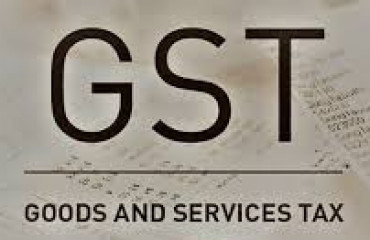
NEW DELHI : The plan to rationalize goods and services tax (GST) rates to boost revenue collection for central and state governments may get delayed because of the sudden deterioration in macroeconomic conditions, including slowing economic growth and surging inflation.
NEW DELHI : The plan to rationalize goods and services tax (GST) rates to boost revenue collection for central and state governments may get delayed because of the sudden deterioration in macroeconomic conditions, including slowing economic growth and surging inflation.
A ministerial panel led by Karnataka chief minister Basavaraj Bommai looking into GST rate rationalization will weigh the evolving economic conditions while making recommendations, said a person familiar with discussions among its members. However, with retail inflation accelerating to an eight-year high of 7.79% in April, increasing tax on consumption has become an uphill task for the panel.
The ministerial group's focus is on high-end consumption items, where policymakers believe there is room for an increase. For instance, the group is considering shifting items such as refrigerators, washing machines, televisions up to 68 cms, hairdryers and vacuum cleaners to the 28% slab after having moved them to the 18% slab in 2018. So there is scope for bringing these items back into the highest slab, said the person.
"Now, governments need money to support people. No government can go without tax revenue. High-income groups can pay more tax on luxury items, while low-income groups need support from the government on mass-use items," the person said on condition of anonymity.
Although indirect taxes in general affect the rich and the poor alike, India's GST has been designed to be progressive with higher rates on luxury items and the lowest rate or no tax on mass-use items. But over time, the number of items in the 28% slab has been sharply pruned.
Experts said the macroeconomic context of domestic growth scenario and commodity prices is significant in a rate revision exercise.
According to Sachchidanand Shukla, group chief economist at Mahindra and Mahindra, the idea of GST is to have positive outcomes for the fisc—both Centre and states—without impacting consumption negatively. That is, governments get more revenue via higher volume growth as consumers get the benefit of lower prices, he said. "Hence, looking at only one part of the equation, that is, only revenue for the exchequer when consumption and sentiments remain weak, may not be the most ideal course. Therefore, rate rationalization needs to balance the consumption cycle as well as the best interest of states and central governments," said Shukla.
"If a broad-based GST rate revision is what is contemplated, then it will make sense to act with caution and probably wait for a quarter to see if inflation moderates from where it is now," said Suranjali Tandon, an assistant professor at the National Institute of Public Finance and Policy.
An email sent to the finance ministry and the GST Council on Monday seeking comments remained unanswered at the time of publishing.
The immediate challenge for policymakers is to reconcile a rate increase with the macroeconomic problems of inflation and sluggish private consumption. N.K Singh, who chaired the 15th Finance Commission, which originally recommended a revision in GST rates and slab structure to boost revenue collection, had said this medium-term goal is best achieved when economic growth is more robust, Mint reported on 29 April.
